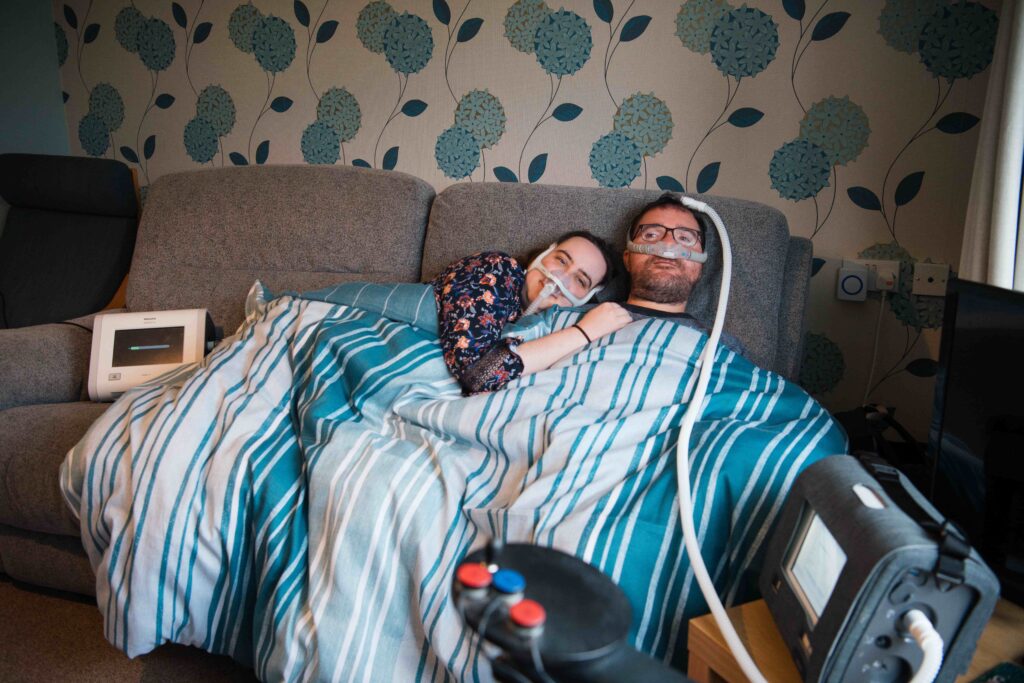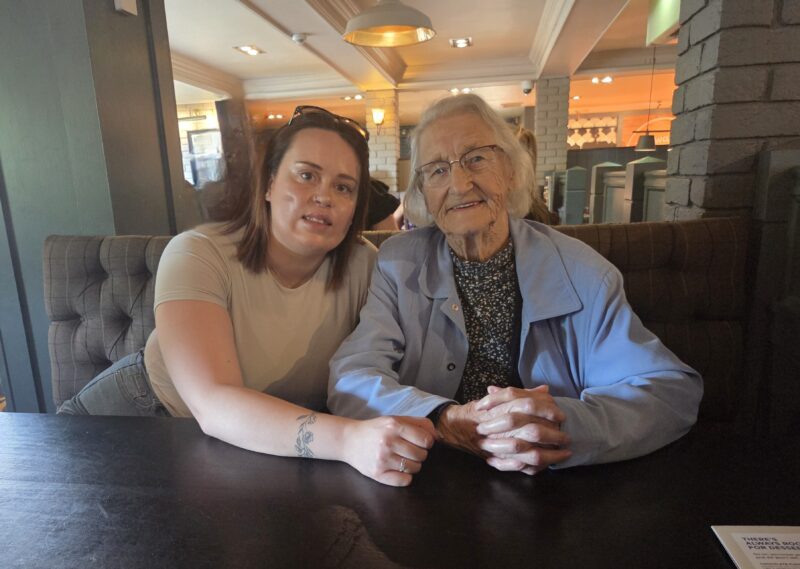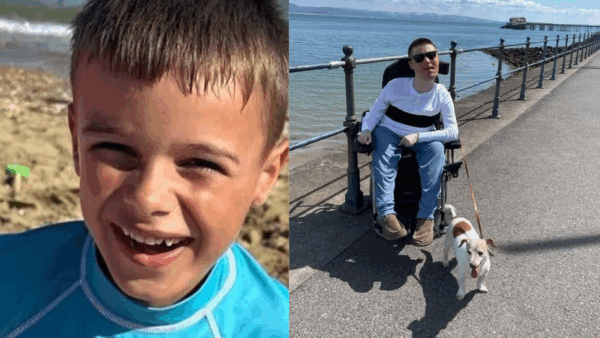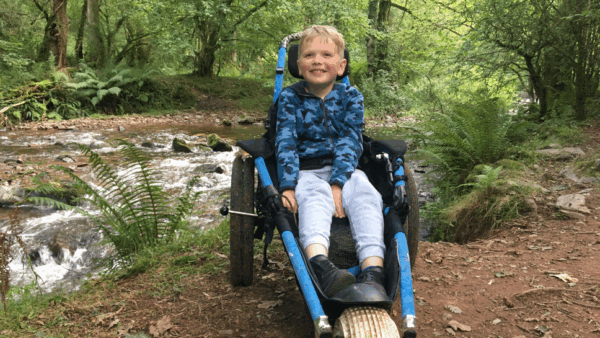Charlotte and her husband, Tom, live together and both have muscle wasting conditions. As well as experiencing increased financial costs due to their disabilities, they also have to cope with receiving less benefits because they are married and live together.
“My husband and I lost a lot of our benefits because we chose to get married and live together”

The additional costs feel endless
One of the biggest expenses for us is our energy bills which we spend roughly half our income on. We both have air mattresses to ensure we don’t get pressure sores, we have four ventilators between us, which are running or charging 24 hours a day, two wheelchairs which need to be charged regularly, and wash dry toilets to name just a few things.
Another thing we spend a lot of money on is hot water. We both get a lot of muscle pain and circulation problems, so having hot baths and showers regularly helps with this, but it all adds up.
We have 24-hour care, including waking night shifts, which means the carers need the heating on overnight to stay warm. They’re also charging things like their phones and laptops, making hot drinks overnight, and having lights on, so that’s another expense we need to factor into our budgeting.
“People often assume all medical expenses are covered by the NHS, but that’s not always the case.”
Distilled water for our ventilator humidifiers, creams to stop my skin breaking down, and incontinence pads are just a few examples of things we pay for ourselves. Equipment like nebuliser machines and specialist seating, can be funded by the NHS, but waiting times have been more than two years at points. This means we’ve had to spend thousands of pounds on equipment because we’re not able to wait that long.
Food is also an issue as we both have swallowing difficulties. We therefore make smoothies quite often, but fruit and vegetables have really gone up in price. We sometimes rely on ready meals, but it’s usually the expensive brands that have quality meat soft enough to chew.
Getting married has cost us our benefits
Tom and I have been married for six wonderful years, but our happiness has come at a price.
“When you get married and live together, your benefits are given to both of you as a joint award rather than being assessed individually, so we lost a considerable amount of our monthly income.”
Having all these additional costs inevitably adds another layer of stress and puts a strain on your mental health. There’re so many things we’d love to do together as a couple while we’re still physically able to, but we nearly always end up having to use the money we’ve put aside for savings that month on essentials. We’d love to go on holiday together, but it’s impossible to do a budget holiday with our access requirements and needing to pay to take four carers with us, so it seems like an impossible dream considering we’re not able to save any money each month.
We want to work but the benefits system stops us
We’re both very nervous about being moved from Employment and Support Allowance (ESA) to Universal Credit as we think we’ll lose about £100 a week.
“The crazy thing is we both want to work so we’re not under so much financial pressure and feel like less of a burden on society, but the benefits system puts so many barriers in the way.”
Even when we’ve tried to do work that’s permitted within the benefits we receive, we’ve had difficulty getting the Department for Work and Pensions (DWP) to agree it. They argue we shouldn’t be able to work if we need the level of support we receive. If we could get around this and work part-time, other financial support such as Housing Benefit and Council Tax Reduction could be affected, and we may actually struggle more financially.
Because of this, we’ve both chosen to do voluntary work which we enjoy, but it doesn’t seem fair. We still got into trouble because we were accused of doing voluntary work without permission and lost six weeks of benefits. Eventually we got this back, but it was so stressful!
The upfront Motability payment is a big concern
We’ve tried to extend our Motability car leases for as long as possible, but we know we’ll have to get new ones soon. The initial payment for a new Motability car is always a lot, but both of us need vehicles where we can drive our wheelchairs into the front passenger seat space, rather than sitting behind the driver.
I can have seizures so my carer needs to be able to always see me, and Tom’s voice is extremely quiet due to his respiratory function, meaning he wouldn’t be able to communicate if he was in the back of the car. We’ve heard they’re no longer funding these vehicles for people who aren’t going to be driving the car, so we will need to fight for this, and even if we succeed, we’ll need to pay a huge amount towards this.
If we are struggling, how are others surviving?
Although we’re experiencing increasing financial challenges, we’re grateful for the support we receive. We get extra benefits for being classed as ‘severely disabled’ and all our care is funded by the Continuing Health Care (CHC). So, if we’re just about managing, how are those with less support going to survive?’
Over half of those who contributed to the report (53%) said they feel financially insecure- echoing concerns following the Government’s budget announcement last month. 17% of those reported feeling very insecure.
We call for action from the UK Government.
Online resources for guidance on benefits, financial support for home or equipment, and assistance with managing bills.
Call us on 0800 652 6352 Monday to Thursday 10am to 2pm. If you call outside of the helpline opening hours, please leave a message and we’ll aim to get back to you within five working days.
You can also email us info@musculardystrophyuk.org.


